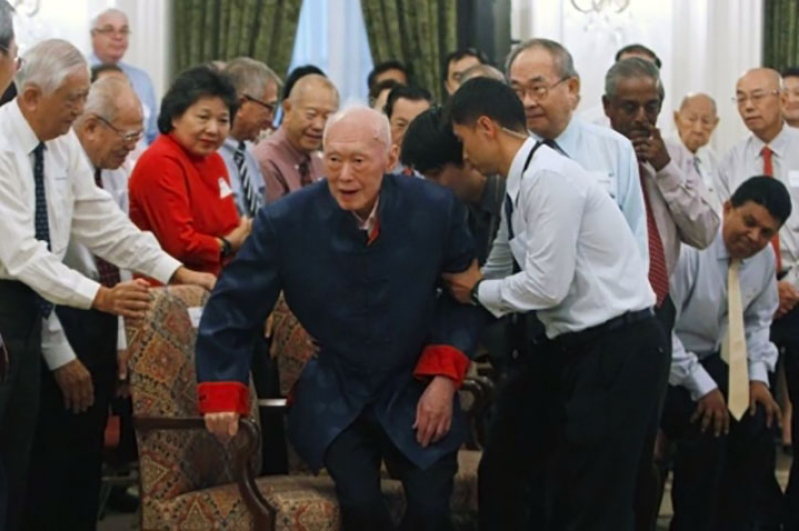
The multicultural, economic powerhouse country of Singapore has declared a week of mourning after its founder, Lee Kuan Yew, died on Sunday. He was 91 years old.
According to Chun Han Wong and P.R. Venkat of the Wall Street Journal, Lee dominated Singapore politics for more than half a century. He was being treated in hospital under intensive care for a pneumonia infection since early February.
"[Lee] passed away peacefully at the Singapore General Hospital today at 3:18 a.m.," the Singaporean government said.
The Wall Street Journal reported that Lee's state funeral will be held on March 29.
Although he was an agnostic for most of his life, BBC News reported that up until his death, Christianity has influenced him. That's because his wife, Kwa Geok Choo, suffered from ill health and dementia that confined her to bed; he elaborated on the stress related to caring for her in a 2010 New York Times interview.
"She understands when I talk to her, which I do every night," Lee said, noting that the task was much harder than politics. "She keeps awake for me; I tell her about my day's work, read her favorite poems."
According to BBC News, Lee took up Christian meditation in his later years to "keep the monkey mind from running off into all kinds of thoughts." His wife died in 2010.
"Without her, I would be a different man, with a different life," Lee said at her funeral.
During his 31 years as Singapore's first prime minister, Lee built a First World country that focused on clean and efficient government, economic policies that favored businesses, and maintaining strict social order. However, the Wall Street Journal reported that Singapore achieved its remarkable transition from a former British colony at the expense of personal freedoms and full Western-style democracy.
"Although Singapore held regular free elections under Mr. Lee, laws proscribing public gatherings and limiting other civil liberties hampered the development of a powerful opposition," Wong and Venkat wrote. "Western media called Singapore a 'nanny state' and lampooned its attempts to create an orderly society through rules, incentives and ad campaigns."
Phil Robertson of Human Rights Watch elaborated on the legacy Lee left on Singapore.
"Lee Kuan Yew's tremendous role in Singapore's economic development is beyond doubt, but it also came at a significant cost for human rights," Robertson said. "Today's restricted freedom of expression, self-censorship and stunted multiparty democracy is also a part of his legacy that Singapore now needs to overcome."
Current Prime Minister Lee Hsien Loong defended his father's legacy in a nationally televised speech on Monday.
"He fought for our independence, built a nation where there was none, and made us proud to be Singaporeans," Loong said. "Singapore was his abiding passion. He gave of himself in full measure to Singapore."
The Wall Street Journal reported that Lee, who was influenced by socialism in his youth, argued that the strict policies were needed in Singapore because the country lacked natural resources and population advantages like the U.S., China and Indonesia. However, the country was located in one of the busiest shipping lanes in the world.
"The government transferred some of the wealth to Singaporeans in the form of subsidized housing and other benefits," Wong and Venkat wrote. "Rather than give money directly to the poor and unemployed, Mr. Lee supplied affordable state-built apartments that he encouraged citizens to buy."
If anything, the Wall Street Journal indicated that Lee's legacy for Singapore would include the ideals of thrift, self-reliance and respect for elders, education and social order.
"I stressed that freedom could only exist in an orderly state," Lee wrote in a memoir entitled "From Third World to First."






